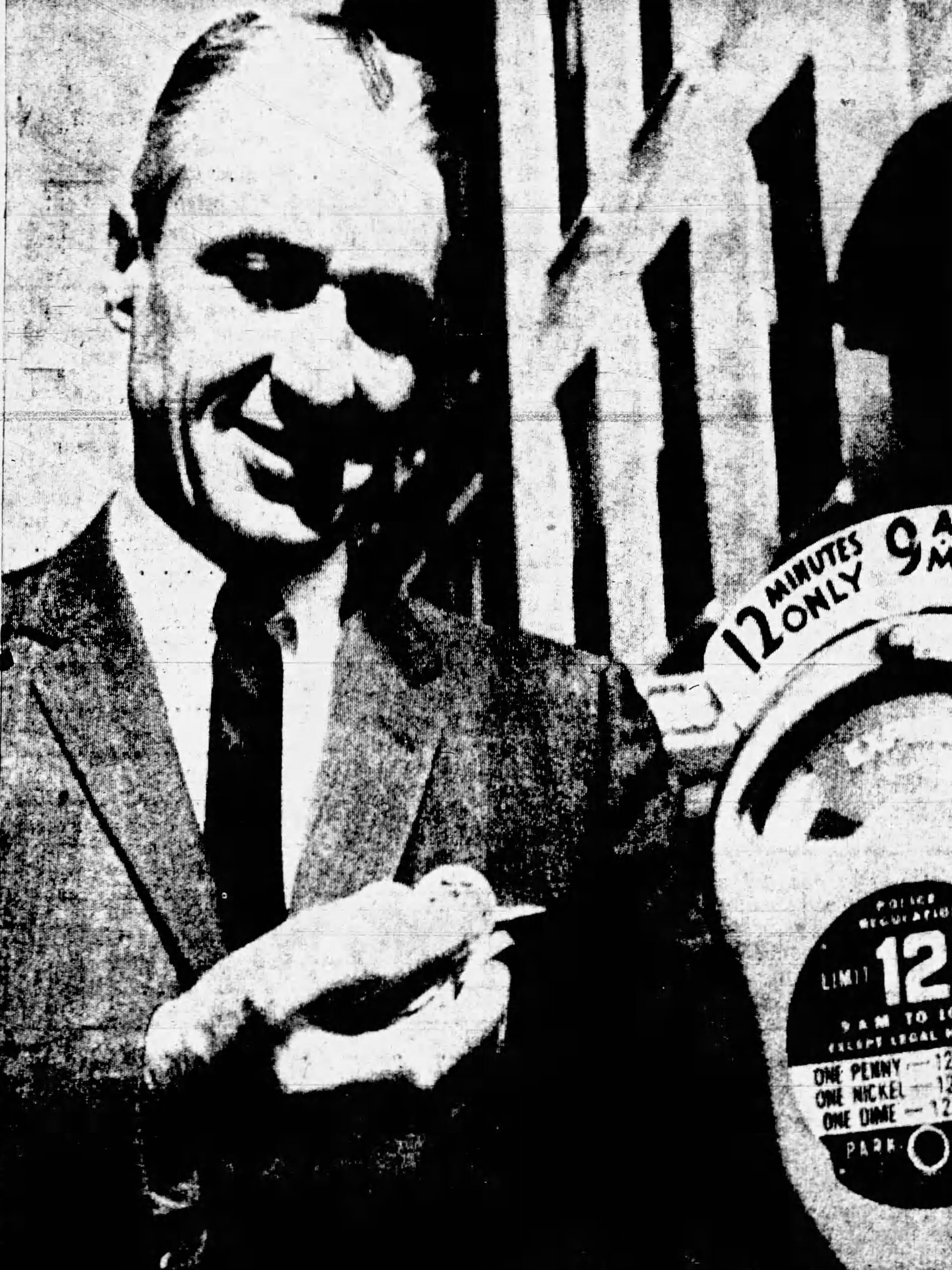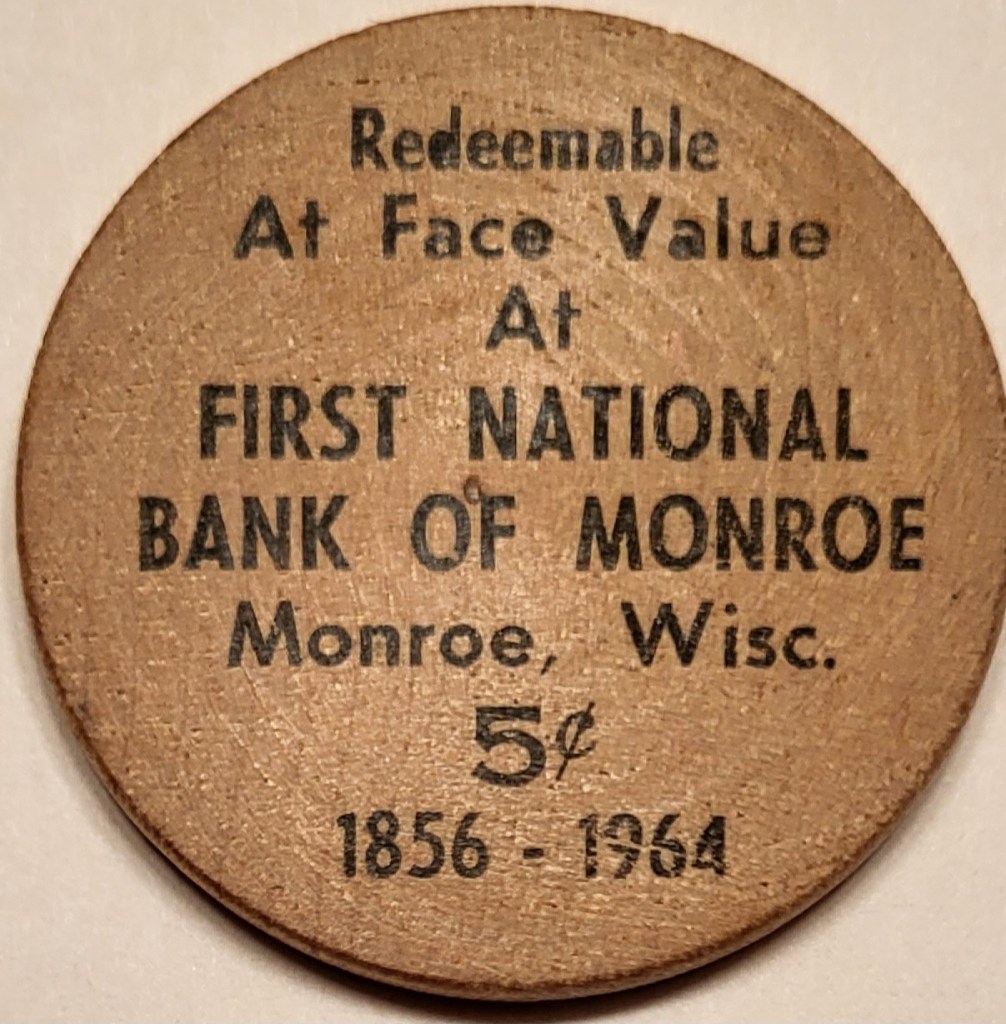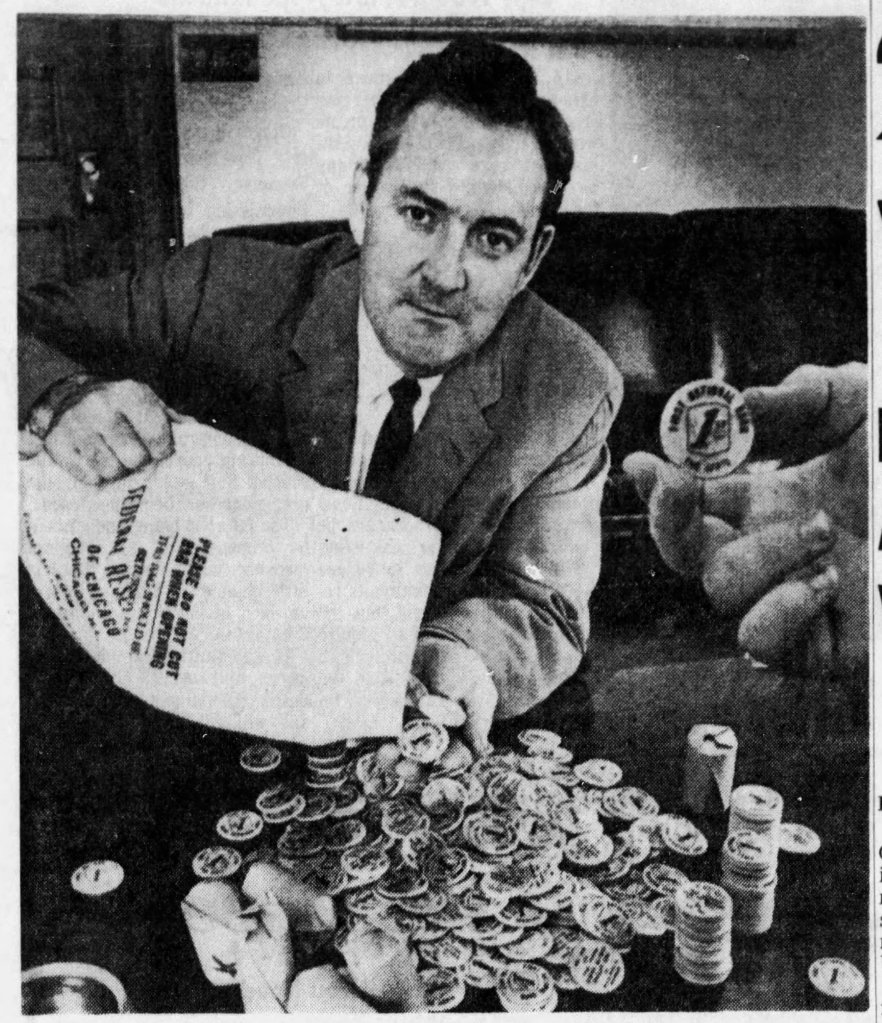
In May 1964, Edward Adam, the president of the First National Bank of Monroe, Wisconsin was facing a problem. The bank, like banks in many parts of the country, was dealing with a coin shortage. Rising silver prices had led speculators to hoard US coins and the post-war vending machine boom strained the supply of circulating coinage. Adam and the bank decided to deal with the problem themselves by circulating wooden nickels.

Wooden nickels were a popular souvenir in the United States from the 1930-50s. The most popular type were thin, rectangular balsam strips printed on both sides usually to commemorate an event or significant anniversary like a municipal centennial. In the early 1960s, wooden nickels in the form of round tokens began to be used by businesses as a cheap advertising medium. It seemed like a reasonable solution to the bank president.

The bank in Monroe placed an order for 20,000 wooden nickels with an advertising jobber in Minnesota. They began circulating on May 20, 1964. The bank had pledged to redeem all the wooden nickels in circulation. They were an immediate success and a boon to the local economy.

They were so successful that, when the United States Secret Service arrived at the bank a week later, only 450 remained on hand. What seemed like a novel solution to Adam was a federal crime. The Treasury Department determined that the bank was issuing its own currency and had to put an immediate end to this threat to the integrity of the US money supply.

The Secret Service, through the United States Attorney in Madison, demanded the bank cease circulating the tokens and recall all those that had been issued. The bank did what it could and on June 3, 1964 turned over what remaining stock it had to the US Attorney.
Newspaper accounts of the debacle were picked up by the wire services and collectors came calling. The First National Bank of Monroe and local merchants received inquiries from collectors around the country looking for examples of the contraband timber. Prices settled in at $5.00 per token. The bank, of course, could not comply with collector requests but the good citizens of Monroe were not above a little profiteering.
Was there acceptable language the bank could have used on the wooden nickel that would have allowed it to be a functional unit of exchange?
LikeLike
Probably not. A national bank does not have the authority to issue anything that looks or acts like money. They would also have been prohibited from receiving scrip, tokens or other privately issued pieces on deposit or as payment on loans.
LikeLike